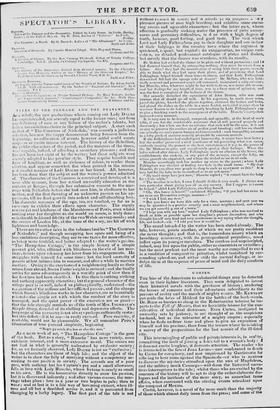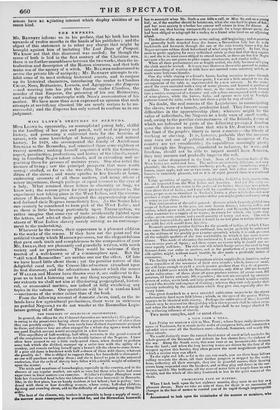C ORTES.
THE bias of the Americans to substantial things may be detected even in their lighter literature. They seem delighted to invest their historical novels with the greatness of history; rendering the heroes of romance and their adventures subordinate to the persons of reality and the march of mighty events, Mr. KENNEDY put aside the loves of Mildred for the battles of the back-woods. Dr. BIRD so hurries us along in the Robertsonian interest lie im- parts to the Fall of Mexico, that we have little leisure for the con- sideration of individual distresses. Even Cortes, instigated to unworthy arts by jealousy, is not thought of as the suspicious husband, but as the subverter of a mighty empire; especially when he finds no fitter time and place to give an exposition of himself and his passions, than from the terrace where he is taking a survey of the preparations fur the last assault of the ill-fated city. This intermingling of public and private interests is, in reality, committing the fault of joinieg a fish's tail to a woman's body : if it does not excite laughter, it distracts attention. The reader who is interested in the fate ofJnan Lerma—now condemned to death by Cortes for conspiracy, and now imprisoned by Guatimozin for refusing to bear arms against the Spaniards—er who is anxious to discover the mysteries attendant upon the nun of Magdelena, and the military monk Camarga—will deem the historical narra- tives interruptions to the tale; whilst those who are excited by the romance of the history will be apt to skip the rather elaborate dia- logues and the incidents of the mere story, as somewhat tame affairs, when contrasted with the stirring, events attendant upon the conquest of Mexico. Cortes, however, is a note) of far more merit than the majority of those which almost daily issue from the press; and some of the
scenes have an a:;itating interest which display abilities of no mean kind.



























 Previous page
Previous page